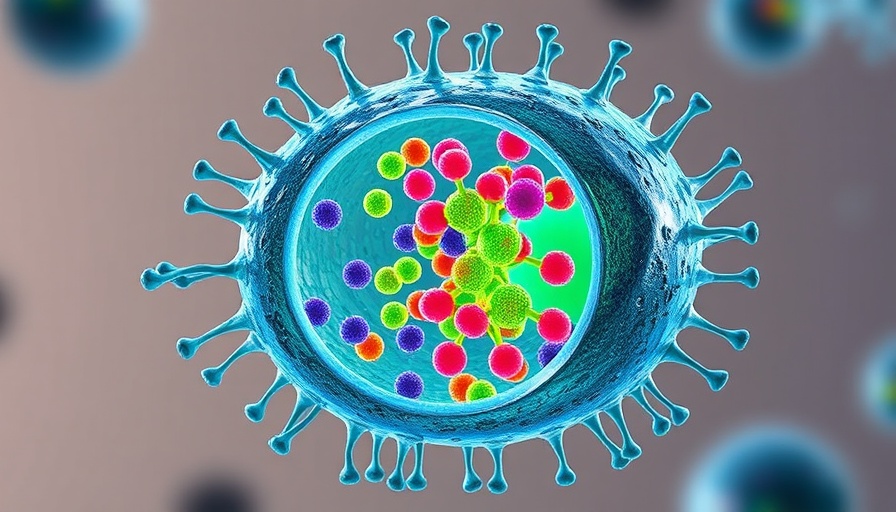
Exploring the Hidden Roles of Gut Microbes
Our gut is home to trillions of microbes that play critical roles beyond digestion, such as regulating our immune systems and influencing our overall health. Recent research from the University of Cambridge unveils a groundbreaking discovery: specific gut bacteria might be able to absorb hazardous per- and polyfluoroalkyl substances (PFAS), commonly referred to as "forever chemicals." These substances are notorious for their resistance to degradation, posing significant health risks including cancer, cardiovascular issues, and developmental delays in children.
PFAS: The Ubiquitous Pollutants
PFAS are widespread in our environment and everyday products, from nonstick cookware and food packaging to waterproof clothing and cosmetics. Their persistence in our bodies has made them a concern for public health officials worldwide. With exposure to these chemicals unavoidable, scientists are searching for innovative methods to mitigate their negative impacts. This recent study suggests a promising avenue: enhancing our gut microbiomes with specific bacteria capable of absorbing these harmful substances.
How Gut Bacteria Could Save Us
The researchers found that introducing nine specific strains of human gut bacteria in mice resulted in notable PFAS absorption, with rates between 25% to 74% shortly after exposure. This groundbreaking evidence reveals the potential bioaccumulation capacity of gut microbes when exposed to PFAS. Importantly, these enhanced bacteria could help flush the pollutants from our bodies, reducing the harmful effects they impart. Dr. Indra Roux, a leading researcher on the study, emphasized that while PFAS has become integrated into our body, nurturing these specific microbes could help alleviate the worries surrounding long-term health impacts.
The Need for Further Research
While the findings present hope, caution is warranted. The results, though promising, are still confined to animal studies. Direct tests in humans have yet to be conducted. Therefore, while these gut bacteria present an exciting potential solution, researchers stress the need for additional studies to explore how effective this method could be in humans.
The Bigger Picture: Why This Matters
The implications of this research go beyond just an innovative solution to combatting PFAS in our bodies. It underscores the interconnection between human health and environmental factors. As society grapples with the consequences of industrial waste and pollution, understanding our microbiome's role opens new doors to both personal and environmental health. With climate change intensifying the prevalence of contaminants in our environment, it’s essential to continue advancing our knowledge about gut bacteria's protective capabilities.
Actionable Steps Towards Healthier Living
To cultivate a healthy gut and potentially increase your body's resilience against harmful substances, consider dietary choices that support gut health. Foods rich in prebiotics—such as garlic, onions, bananas, and asparagus—can promote the growth of beneficial bacteria. Probiotic-rich foods like yogurt, kefir, and fermented vegetables can introduce good bacteria directly into your system. As we navigate our way through a world filled with environmental hazards, fostering a healthy microbiome might be one of the best defenses we have.
The conversation about PFAS is just beginning. As we learn more about these chemicals and their impact on our lives, the hope is to not only understand their effects but find proactive solutions. Investing in our gut health could be a crucial step in this ongoing journey.
 Add Row
Add Row  Add
Add 



Write A Comment